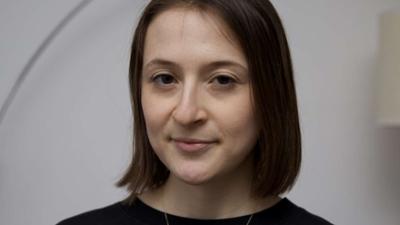
Contact details
- Name:
- Dr Odile Liliana Panetta
- Qualifications:
- BA in History at University College London (2017); MA in History of Political Thought and Intellectual History at UCL/Queen Mary, University of London (2018); PhD in History at the University of Cambridge (2023)
- Position:
- Lecturer in Cultural and Intellectual History
- Institute:
- Warburg Institute
- Email address:
- odile.panetta@sas.ac.uk
- Website:
- https://warburg.sas.ac.uk/people/odile-liliana-panetta
Research Summary and Profile
- Research interests:
- Early Modern, History
- Research keywords:
- Early modern intellectual history | History of political thought | Early modern Protestantism | Renaissance Humanism | Religious toleration and dissent | Discipline and punishment | History of universities
- Summary of research interests and expertise:
-
Bio
Odile is a temporary Lecturer in Cultural and Intellectual History at the Warburg. She completed a BA in History at University College London (2017), an MA in History of Political Thought and Intellectual History at UCL/Queen Mary, University of London (2018), and a PhD in History at the University of Cambridge (2023); in 2021, she also held a Regard Visiting Fellowship at the Institut d’Histoire de la Réformation in Geneva. Before joining the Warburg, Odile taught at Cambridge, UCL, and the London School of Economics. She is currently also a part-time postdoctoral researcher at Aarhus University.
Research
Odile’s work is broadly concerned with the history of moral, political, historical, and religious thinking in early modern Europe, as well as the immediate and long-term impact of humanism on European culture. She is particularly interested in the mechanisms by which ideas are transmitted and reproduced; her research thus draws on a number of historical fields alongside intellectual history, including bibliography, print culture, the history of reception, and the history of universities.
Her doctoral thesis focussed on the contributions brought by Italian Protestant refugees to the debate over the legitimacy of coercing heretics that raged across Switzerland in the three decades following the execution of the Antitrinitarian Michael Servetus in Geneva in 1553. Her work on the Swiss heresy debate resulted in her first article, in which she examined justifications for the punishment of heretics in the thought of the prominent Reformed theologian Théodore de Bèze (1519-1605); two further forthcoming articles explore, respectively, the role played by the Italian humanist and heterodox reformer Celio Secondo Curione (1503-1569) in contemporary discussions over religious coercion, and the significance of a humanist background in shaping the positions of participants on both sides of the heresy debate.
At present, Odile’s main focus is a new project on justifications for punishment and ecclesiastical discipline in early modern Reformed thought until ca. 1630. The project explores both how Reformed thinkers theorised the state’s role in inflicting corporal punishment for material and spiritual crimes alike, and how they sought to promote their ideas through polemical works, educational tools in Reformed academies and universities, and catechetical material for wider audiences; further, it examines debates within Reformed Protestantism over the respective roles of Church and state in policing lesser forms of misconduct, such as sexual transgression or drunkenness. Her research speaks to debates over the role played by processes of confessionalisation in the rise of the modern state, and is part of a wider project, funded by the Aarhus University Research Foundation and led by Anna Becker, entitled “Body politic(s) – The body in early modern political thought”.
Teaching
Odile is currently convenor for the core module “Methods and Techniques of Scholarship”, which introduces MA and first-year PhD students to the nuts and bolts of becoming a historian and guides them in designing and pursuing an independent research project in view of their dissertations.
In Term 1, she also co-teaches on the core module “Reviving the Past” (MA in Cultural, Visual and Intellectual History and Postgraduate Certificate in Cultural, Intellectual and Visual History), where she lectures on subjects including humanist scholarship and movements of religious reform.
In Term 2, she teaches an option module on “Renaissance Political Thought”, which explores some of the central themes and problems that preoccupied political thinkers between the rise of humanism and the late Renaissance.
In Term 3, she supervises MA dissertations.
Publications
‘Heresy and Authority in the Thought of Théodore de Bèze’, Renaissance and Reformation / Renaissance et Réforme 45.1 (2022), pp. 33-72. (Opens in new window)
‘Celio Secondo Curione and the Question of Religious Coercion’, in La toile de Celio Secondo Curione (1503-1569), eds. C. Lastraioli and D. Solfaroli Camillocci (forthcoming in Études Renaissantes, Brepols).
‘Pagan Knowledge and Religious Coercion in Mid-Sixteenth-Century Switzerland’, in Classical Reformations: Beyond Christian Humanism, eds. M. Lazarus and L. Nicholas (forthcoming, Brepols).